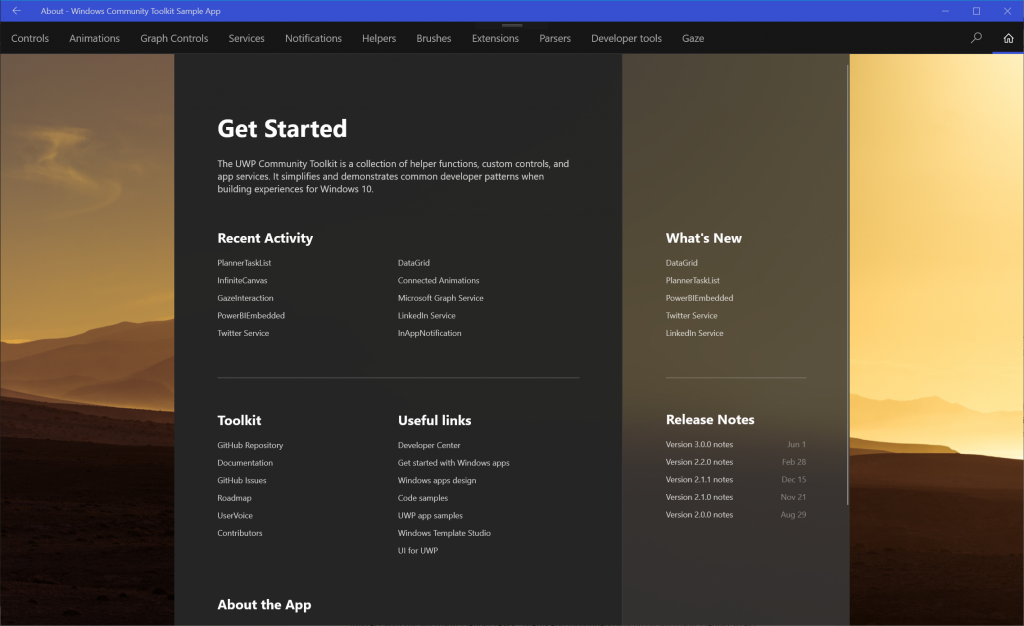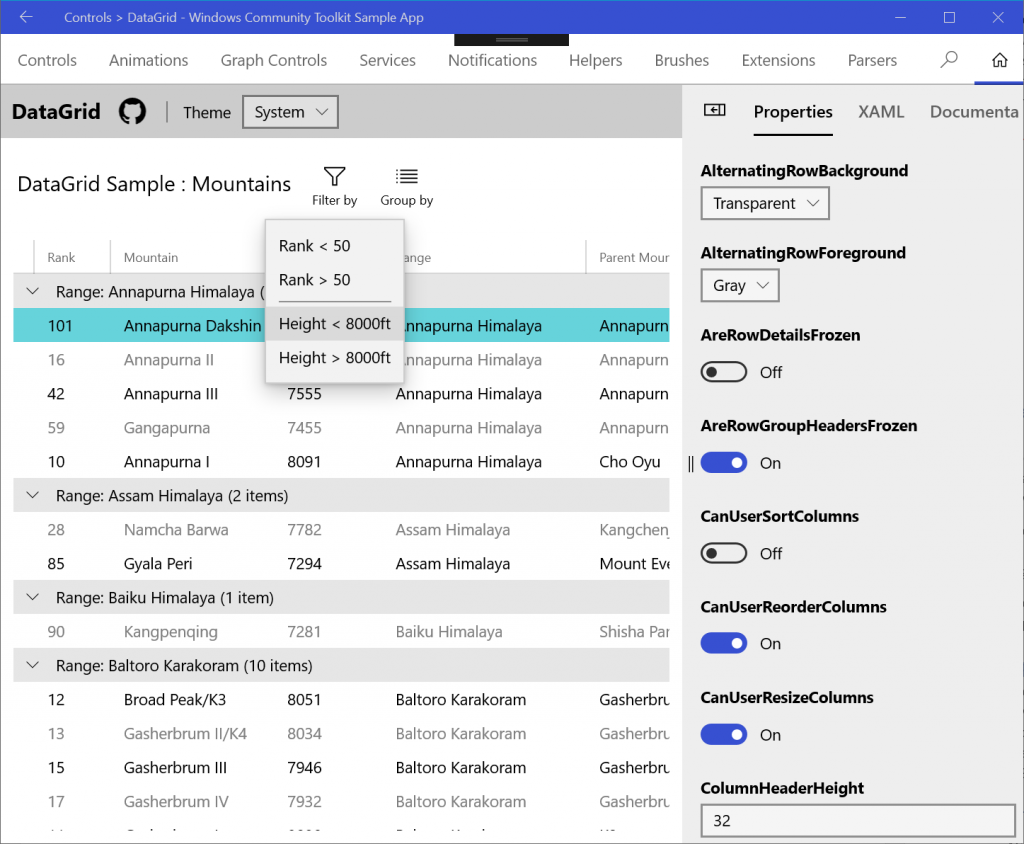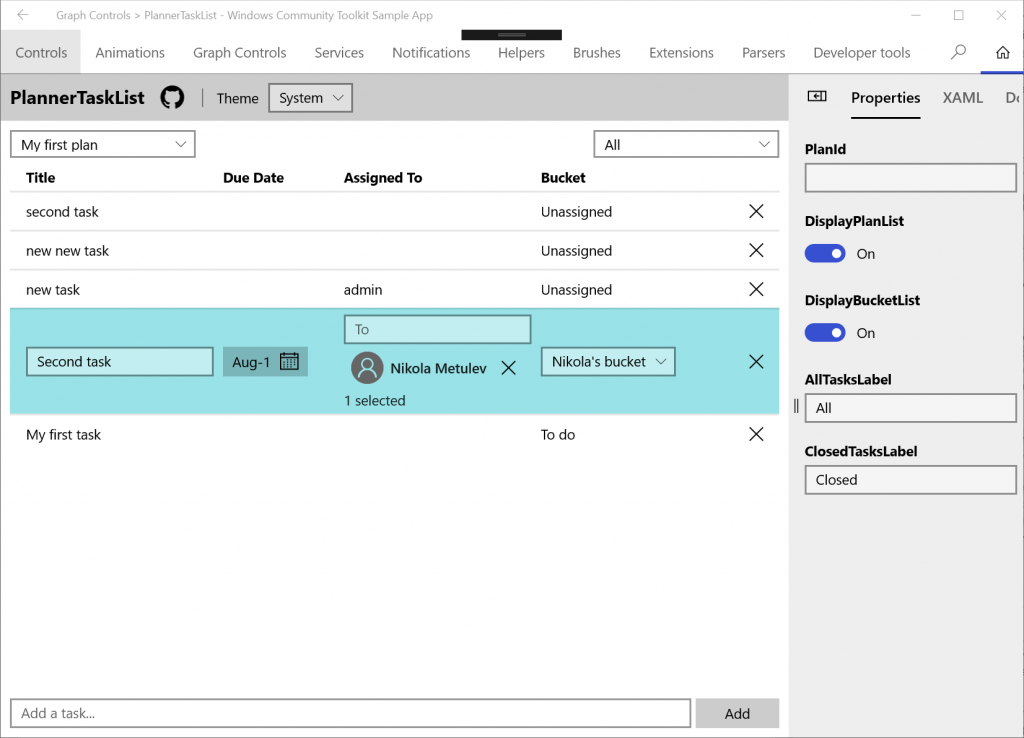The Windows Community Toolkit recently reached over 1 million downloads across all nuget packages. This is a very big milestone for the community and I’m very excited to announce yet another major update to the Windows Community Toolkit, version 4.0. With the help of the Windows community, this update introduces several new additions and improvements, specifically:
- New DataGrid with fluent design for all UWP developers
- Two new Microsoft Graph controls. PowerBIEmbedded enables embedding PowerBI dashboards in your UWP apps and PlannerTasksList allows users to work with Microsoft Planner tasks
- The Twitter, LinkedIn, and Microsoft Translator services have moved to the .NET Standard services package and available to even more developers, including desktop and Xamarin developers
- Strong-named packages for those developers that require strong-named assemblies
- Dark theme support for the sample app and theme chooser for each sample
These are some of the biggest updates in this release and I encourage you to view the full release notes on our GitHub. Let’s take a look at some of these updates in more details.

New fluent DataGrid control
We had introduced a preview of a fluent DataGrid control for Windows 10 in Version 3.0. In the past several months, we have added a few more features based on community feedback, ensured more reliability and better accessibility for the DataGrid control. We are now pleased to announce the general availability of the DataGrid control.
The DataGrid control is a robust control that provides a flexible way to display a collection of data in rows and columns. It retains the programming model for DataGrid from Silverlight and WPF so it is familiar to XAML developers who have used the DataGrid control in older XAML technologies. Developers can now create highly flexible tabular visualization of data with editing, data validation and data shaping functionalities with a few simple lines of code in Windows 10:
<controls:DataGrid x:Name="dataGrid1"
Height="600" Margin="12"
AutoGenerateColumns="True"
ItemsSource="{x:Bind MyViewModel.Customers}" />

Make sure to visit the DataGrid documentation to learn about the capabilities of the DataGrid control with detailed guidance documents and How-Tos with code samples. DataGrid comes in a standalone nuget package that you can download and add reference to.
New Microsoft Graph controls
Version 3 of the toolkit introduced a new category of UWP controls to enable developers access the Microsoft Graph. With few lines of code, developers can add UI to enable users to log in to the Microsoft Graph, search for coworkers and friends, browse SharePoint files and more. Version 4.0 introduces two new Microsoft Graph controls: PlannerTaskList and PowerBIEmbedded.
The PlannerTaskList enables developers to integrate tasks directly in their apps and allow users to interact with the Microsoft Planner tasks. Teams and individuals depend on Microsoft Planner to get organized quickly, work together effortlessly, and stay on the same page.

The PowerBIEmbedded control enables developers to embed a rich PowerBI dashboard directly in their apps and allow users to interact with the rich data directly.
Moved Twitter, LinkedIn, and Microsoft Translator services to .NET Standard
The Windows Community Toolkit contains APIs to make it easy to work with web services such as Twitter, OneDrive, LinkedIn, Microsoft Graph and more. Originally only available to only UWP developers, with this update, most services have moved to our .NET Standard services package (Microsoft.Toolkit.Services). These services are now available to any framework implementing .NET Standard 1.4 and above, which includes UWP, the .NET Framework (including WPF and WinForms), Xamarin, .NET Core and many more.
Get started today
As a reminder, you can get started by following this tutorial, or preview the latest features by installing the Windows Community Toolkit Sample App from the Microsoft Store. If you would like to contribute, please join us on GitHub! To join the conversation on Twitter, use the #windowstoolkit hashtag.
Happy coding!
Source: Windows Blog
—